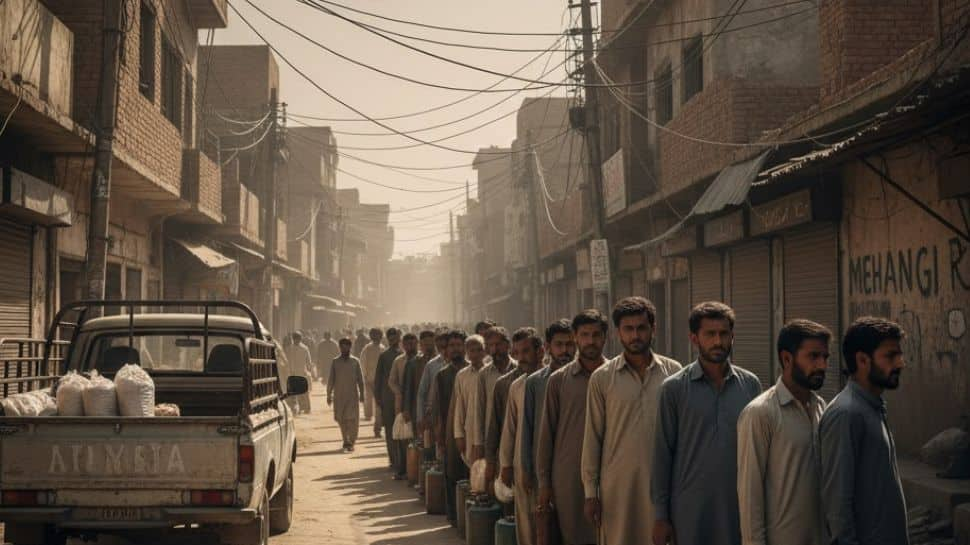New Delhi: With the World Bank forecasting a mere 2.6 per cent GDP growth for Pakistan in 2025-26, the country appears to be stuck in a phase of economic stagnation that has now entered the fifth year of sub-3 per cent growth with mounting unemployment and rising poverty.
Pakistan risks locking itself into a prolonged phase of economic stagnation, warned economist Asad Ali Shah, as the World Bank’s latest update projects growth at just 2.6 per cent for FY25-26 – following a dismal four-year stretch of weak performance, according to an article in Pakistan’s financial daily Business Recorder (brecorder.com).
Expressing his views on the social media platform X, Asad, the former president of the Institute of Chartered Accountants Pakistan (ICAP), said: “The World Bank’s latest Pakistan Development Update has revised down the FY25-26 growth forecast to just 2.6 per cent, compared to the government’s more optimistic projection of around 4 per cent.”
“This comes after three years of dismal performance — (-) 0.2 per cent in FY23, 2.5 per cent in FY24, and 2.7 per cent in FY25 — marking what is arguably the worst four-year stretch in Pakistan’s economic history, defined by sustained low growth, record inflation and interest rates, and a collapse in investment confidence.”
Pakistan’s economy has been further hit by catastrophic floods, weighing on agricultural output, and inflation pressures have resurfaced, the article states. The report further noted that Pakistan’s inflation rate dropped to single digits in FY 2024/25, as price increases for food and energy eased. “However, disruption to food supply chains, due to ongoing catastrophic floods, is expected to push inflation up through 2027,” it projected.
Former Federal Finance Minister Miftah Ismail also echoed similar views, saying that “in terms of growth, these FY22-23 to FY25-26 are the worst four years in Pakistan’s history”. Miftah criticised the government for avoiding key reforms, including privatisation, downsizing ministries, and strengthening local governance, arguing that authorities are instead “purchasing stability through low growth” by keeping interest rates, taxes, and utility tariffs high.
“The result is: increased unemployment, poverty and political alienation.” Meanwhile, Asad maintained that Pakistan’s economy “may have stabilised — but it has not recovered”. The economist pointed out that industrial output remains weak, whereas “agriculture is in deep crisis amid climate shocks and policy distortions, and job creation has stalled”.
“Stability is not success,” he stressed, warning that without credible reforms to restore investor confidence, strengthen governance, and shift resources toward productivity and exports, Pakistan risks institutionalising stagnation as its new normal”.


